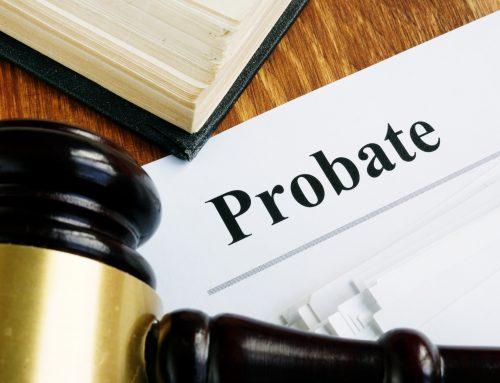For estate planning purposes, both revocable and irrevocable living trusts are extremely useful. But what is an irrevocable living trust, and when might you need one?
What Is an Irrevocable Living Trust?
With a revocable living trust, you still maintain control of the assets that are transferred into it. The trust is also still considered part of the trust-maker’s estate and is subject to tax liability. This is because the trust-maker can change the terms of the trust at any time or transfer property into and out of the trust without consequence.
With an irrevocable living trust, however, once a property has been transferred into it, the property is no longer considered a part of your estate. Because you have significantly less control over an irrevocable living trust, you don’t incur tax penalties on property that is technically considered property of the trust.
Property transferred into an irrevocable living trust no longer technically belongs to you. It immediately becomes property of the trust. Those who have assets that are rapidly appreciating will need to pay income or capital gains taxes on those assets and it will be considered part of their overall estate.
Why Do I Want an Irrevocable Living Trust?
Since assets held within the trust are no longer considered your property, they are no longer your tax liability either. Additionally, creditors who have obtained judgments against you cannot touch assets held in an irrevocable living trust. These are the two main functions of revocable living trusts.
Irrevocable Living Trusts That Can Reduce Taxes:
- Bypass trusts. Established by spouses for minimizing estate taxes after both have passed. If one spouse dies, the other can still use the property but does not technically own it nor is it considered a part of their estate. Assets held within the trust do not pass through probate and are distributed directly to heirs. They also avoid estate taxes.
- QTIP trusts. Created by couples to avoid paying estate taxes until both spouses have passed. QDOT trusts are similar, but work when one spouse is not a U.S. citizen.
- Charitable trusts. Property placed in charitable trusts are moved out of your estate and can generate income for charitable organizations or have the assets held in the trust distributed to the organization upon your passing.
- Generation-skipping trusts. Used to minimize estate taxes for wealthy families. A grandchild is named as a final beneficiary while a child is named as the income beneficiary. The income generated by the trust is taxable, but it does not increase the overall value of the child’s estate. The assets are disbursed to the grandchild when the adult child of the trust-maker has passed.
- Life insurance trusts. Hold life insurance policies that can increase the overall value of an estate. For inheritance purposes, the tax liability of the policy can be avoided so long as the trust has owned the policy for at least three years.
- Grantor-retained interest trusts. Used for individuals to receive an income from the trust or live on property contained within a trust. The income is taxable, but the assets are not considered part of your estate.
Irrevocable Living Trusts That Can Protect Property
- Asset protection trusts: Can be used to protect your assets against creditors or lawsuit judgments. They are ideal for doctors or lawyers who may face major malpractice lawsuits.
- Special needs trusts: Can be established for those on Social Security or public benefits who would otherwise have or make too much money themselves to receive those benefits.
- Spendthrift trusts: Can be established for beneficiaries who may not have a sterling history of managing their own money.
Talk to an Indianapolis Estate Planning Attorney Today
Barnes Caldwell Law can help you manage your assets in the way that most benefits you and your loved ones. It is never too early to talk to an estate planning attorney. Call today to learn more about how we can help.






